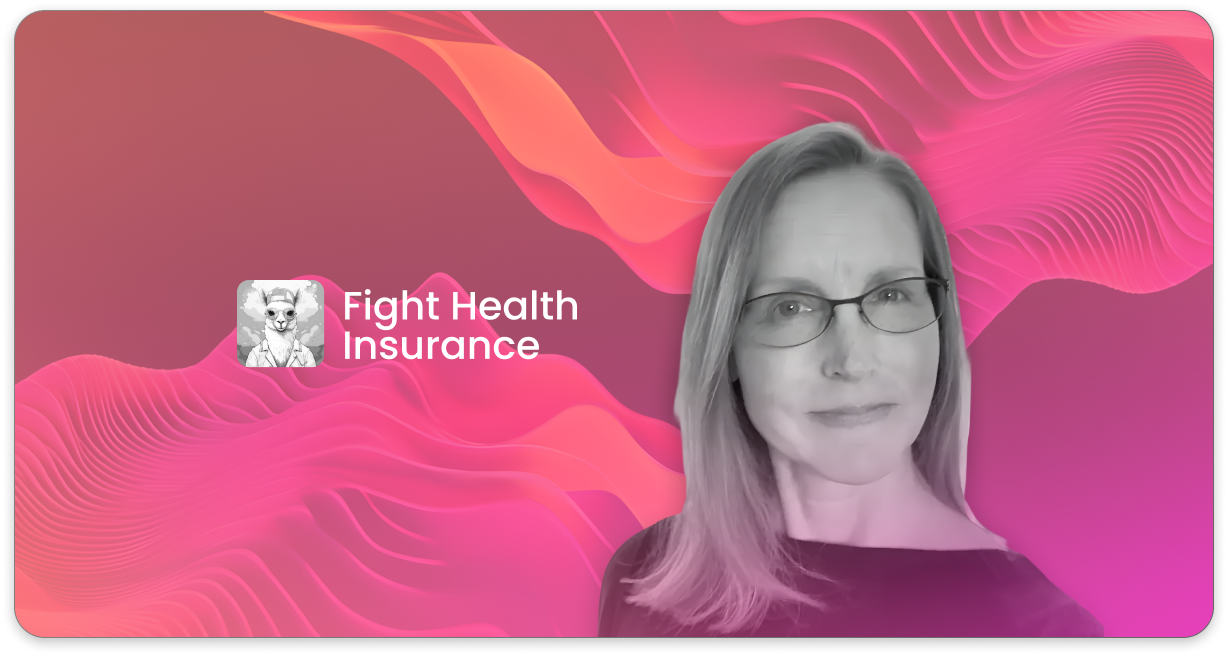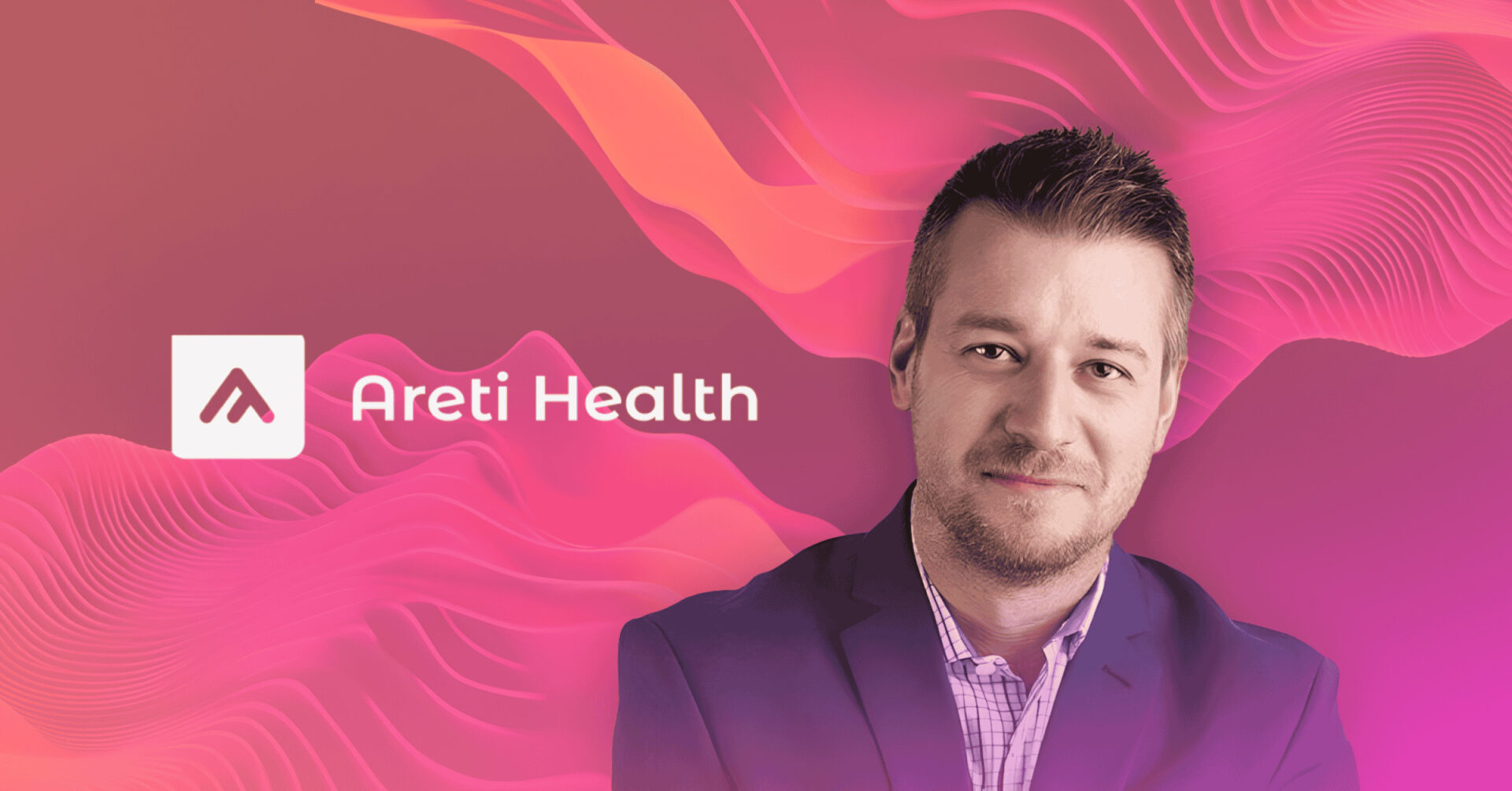Company Overview:
Melanie Warrick, Co-Founder of Fight Health Insurance, which helps with writing appeals to fight health insurance denial. While an appeal is not always the first step in the appeal process, they guide users through options to fight back against health insurance denials. Most health plans are required to offer internal and external appeals and while they often make it confusing, Fight Health Insurance can help.
Can you tell us a little about your background before starting your company?
My career began in film, where I was drawn to storytelling and the challenge of making sense of complex human experiences—a thread that continues to influence how I think and build. From there, I moved into consulting, managing large-scale systems and data projects across industries. Later, I made another pivot and dove into AI engineering—building machine learning features at Change.org, a deep learning platform at a YC startup, and doing both data engineering and developer advocacy for AI at Google. Most recently, I led a software engineering team implementing AI features at Virta Health that improved outcomes for patients managing diabetes. But the real drive behind joining Fight Health Insurance came from my own experience navigating the healthcare system—both as a patient and a caregiver. Supporting a parent through cancer treatment and another living with Alzheimer’s exposed just how inaccessible the process of getting care approved can be. That frustration, paired with a background in AI, health tech, and a lifelong appreciation for human stories, is what pushed me to build something better.
How did you start your company? What were the first steps you took to get it off the ground and how did you identify the need for your product/service in the market?
Holden Karau and I came together to work on Fight Health Insurance (https://fighthealthinsurance.com/) to solve a problem we’d lived ourselves. Navigating insurance to access care is often confusing, time-consuming, and frustrating—for both patients and providers. The first step for FHI came in 2024 when my co-founder, Holden, launched Fight Health Insurance—a free tool that helps patients appeal denied claims. After a traumatic accident in 2019, it took her over six months to recover, and even with great insurance, she had to fight just to get the care she needed. As a trans woman, she’s also experienced—and witnessed in her community—the uphill battle many face in getting coverage approved. These experiences drove her to build something that could help others, and it has: thousands of patients have already used FHI, saving hundreds or even thousands of dollars in the process.
As word spread, providers began reaching out—hundreds signing up for access to a professional-grade tool. That demand led to the creation of Fight Paperwork (https://fightpaperwork.com), which I joined to help build and launch. Our AI-powered assistant is designed for healthcare professionals and staff, helping them automate the creation of prior authorization and appeal letters. Our mission is clear: improve access to care by fighting insurance AI with smarter, domain-specific AI of our own—and ultimately remove the barriers created by denials and delays.
What innovations or unique features set your company apart from others in the industry?
What sets us apart is our domain-trained generative AI, purpose-built to navigate the complexities of insurance documentation. Rather than relying on generic automation, our platform delivers context-aware letter generation, payer-specific guidance, and a natural, chat-based interface we call Doughnut. It’s fast, flexible, and designed to feel like a helpful teammate—not just another tool.
Our AI is continuously learning, improving with every interaction. It’s powered by our proprietary dataset, giving us full ownership over both our model and inference stack—no dependence on external AI vendors. This gives us a critical edge:
- Smarter, faster iteration cycles
- Lower inference costs
- Efficient cloud use, reserved only for burstable workloads
We’re not just making resolving billing issues faster—we’re removing the administrative barriers that delay treatment and improving access to care at scale.
What has been the most effective strategy for scaling your business?
Our growth has been driven by real demand from the front lines of healthcare. Providers are under immense pressure—juggling 40+ prior auths a week, often with limited support and high burnout. Instead of trying to “disrupt” the system from the outside, we’ve embedded ourselves within it—building tools clinicians can use immediately to speed up their workflows and reduce time spent on billing admin. While we’re still working on streamlining integrations and onboarding, our focus has been on making the path from denied claim to submitted appeal dramatically faster.
We’re also moving in sync with the system’s evolution: new CMS regulations are pushing insurers to upgrade outdated processes, and our AI is built to scale with that shift. Our strategy is to meet providers where they are—and make sure the tech actually saves them time, reduces friction, and helps patients get care.
Looking ahead, what are your goals for the future of your company?
Looking ahead, our goal is to be the backbone of AI innovation in medical billing for providers—starting with appeals and prior auths, and expanding into other high-friction workflows. We want to empower professionals to focus on care, not paperwork. For other founders, my advice is to stay close to your users, especially in a messy industry. Build with them, not just for them. Also make sure to find the fun when you can. The journey is intense and long—so embrace the weird, laugh at the chaos, and keep your inner goof fueled. For me, it’s a bit like returning to my roots in storytelling—finding meaning, connection, and a spark of creativity even in the messiest parts of building.


